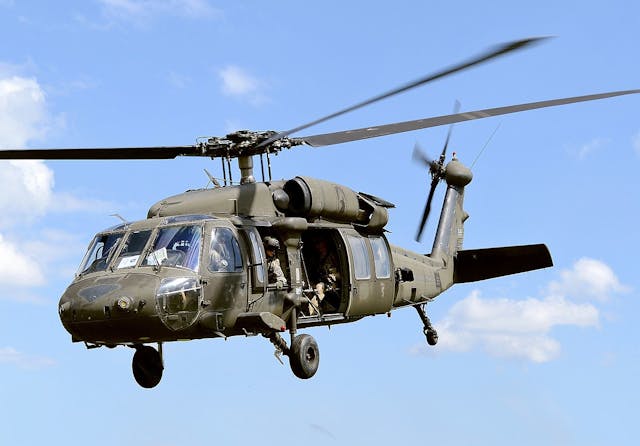The Function of Airplane fit Global Transportation and Trade Characteristics
Through the facility of durable air freight networks, services can now navigate global markets with exceptional speed and agility, therefore redefining supply chain methods. As we check out the multifaceted impacts of airplane on worldwide trade, it is essential to take into consideration exactly how these elements will certainly shape the future landscape of aviation and its duty in the economic climate.

Development of Air Transportation
The advancement of air transportation has been marked by substantial technical innovations and advancements that have transformed the means people and goods relocate throughout the globe. From the Wright bros' very first powered flight in 1903 to the growth of supersonic jets, each turning point has underscored the unrelenting quest of efficiency and rate in flight. Early airplane were mainly basic, restricted by engine power and structural integrity. Nevertheless, the introduction of innovative materials and the rules of aerodynamics in the mid-20th century resulted in significant enhancements in airplane performance, safety and security, and dependability. uh 60.
The latter component of the 20th century saw the emergence of commercial aeronautics as a sensible setting of transport, defined by the introduction of jet engines, which revolutionized air traveling by dramatically reducing trip times. The increase of air freight in parallel with passenger solutions has better highlighted the versatility of air travel.
Influence On Global Trade
Air transport has greatly reshaped international profession by helping with the swift activity of goods across substantial ranges. This expedited logistics capability enables organizations to respond swiftly to market demands, consequently enhancing supply chain effectiveness. The capacity to carry subject to spoiling goods, high-value products, and time-sensitive items has actually opened new markets and chances for different sectors, considerably affecting profession patterns.
Moreover, the growth of air freight networks has actually fostered globalization, making it possible for firms to source products and items from various components of the world perfectly. This interconnectedness minimizes preparations and prices, allowing services to stay competitive in a progressively international marketplace. Additionally, air transport plays an essential function in shopping, where customer assumptions for rapid distribution have driven a surge popular for air freight services.
The effect of airplane on international trade includes the production of critical profession courses, linking regions and promoting global partnerships. Nations that purchase air transport infrastructure commonly experience enhanced financial development and increased international straight financial investment. On the whole, the advancement of air transport has not only transformed the logistics landscape yet has also come to be an important component in the dynamics of worldwide profession.

Economic Advantages of Aeronautics
A robust aeronautics industry creates considerable financial benefits, adding to job production, tourism, and total financial development - uh 60. The air travel sector supports countless jobs around the world, ranging from direct work in airline companies and airports to indirect roles in markets such as friendliness, transportation, and logistics. According to sector reports, for every task in the aeronautics industry, roughly 3.5 added jobs are produced in the more comprehensive economy
Tourism is a crucial aspect of the economic advantages acquired from air travel. Flight assists in global tourist, enabling vacationers to discover diverse destinations, which consequently promotes neighborhood economic situations. Nations that buy their air travel infrastructure typically experience boosted tourist arrivals, resulting in higher investing on solutions such as dining establishments, resorts, and tourist attractions.

In addition, aeronautics improves worldwide connectivity, allowing services to access new markets and resources efficiently. This connectivity cultivates worldwide trade, permitting the fast motion of products, which is crucial in today's globalized economic climate. Because of this, industries such as e-commerce and manufacturing benefit greatly from reliable air transport, further driving economic growth. you can find out more On the whole, the air travel sector stays a cornerstone of economic vitality, underscoring its important role in shaping modern economic situations.
Challenges Facing the Aeronautics Industry
Browsing a complicated landscape of regulatory, ecological, and financial obstacles, the aviation industry encounters significant hurdles that intimidate its sustainability and growth. Rules surrounding safety and security are consistently developing, requiring ongoing compliance and adaptation from airline companies and producers (uh 60). This can lead to enhanced functional expenses and source allocation that diminishes innovation and growth initiatives
Additionally, environmental problems have ended up being extremely important, with growing scrutiny over carbon discharges and sound pollution. The sector is under pressure to embrace greener modern technologies and techniques, which commonly call for significant financial investment in r & d. Balancing these ecological duties with directory the demand for air traveling offers a considerable challenge.
Economic fluctuations, such as rising fuel costs and geopolitical uncertainties, additionally make complex the landscape. Airline companies regularly grapple with volatile operating expense and varying passenger need, which can influence productivity and lasting preparation. Labor scarcities and ability voids in critical areas add another layer of complexity, hindering operational performance.
Ultimately, addressing these complex challenges is necessary for the aviation industry to maintain its pivotal role in global transportation and profession, while making certain strength and flexibility in a significantly affordable market.
Future Patterns in Flight
Moving and emerging technologies customer choices are poised to reshape the future of air travel dramatically. The integration of artificial knowledge and maker discovering is expected to enhance functional effectiveness, streamline airport terminal processes, and boost customer care. Predictive analytics will certainly help with extra accurate need projecting, enabling airlines to enhance trip schedules and rates designs.
Sustainability is becoming a key motorist in flight, with the air travel industry progressively focused on lowering carbon emissions. Technologies in aircraft design, such as electric and hybrid propulsion systems, are being explored to meet environmental targets. Furthermore, the fostering of sustainable air travel gas (SAFs) is expected to play an essential role in accomplishing net-zero exhausts by 2050.
Customer choices are moving in the direction of personalized travel experiences. Airline companies are purchasing sophisticated information analytics to customize solutions and enhance client involvement, guaranteeing a much more tailored journey from booking to arrival. Furthermore, the increase of remote job may result in raised demand for leisure travel, as people look for to combine work and getaway.
Final Thought
In final thought, aircraft significantly influence global transport and trade dynamics by helping with rapid activity and boosting supply chain performance. The evolution of air transportation has transformed worldwide profession, generating substantial financial advantages while likewise providing challenges that require strategic management. Future patterns indicate a continued dependence on aeronautics for business, emphasizing its indispensable duty in globalization and economic development. The recurring adaptation of the aeronautics market will be necessary for sustaining its payments to the international economic climate.
The latter part of the 20th century observed the introduction of commercial aeronautics as a sensible setting of transport, characterized by the intro of jet engines, which transformed air traveling by considerably reducing directory trip times. The rise of air freight in parallel with passenger solutions has better highlighted the versatility of aeronautics. Additionally, air transportation plays an important role in shopping, where consumer assumptions for fast distribution have driven a rise in demand for air products solutions.
Overall, the development of air transportation has not just transformed the logistics landscape however has additionally come to be an important element in the characteristics of international trade.
Sustainability is becoming a vital chauffeur in air traveling, with the aviation market progressively concentrated on reducing carbon exhausts.